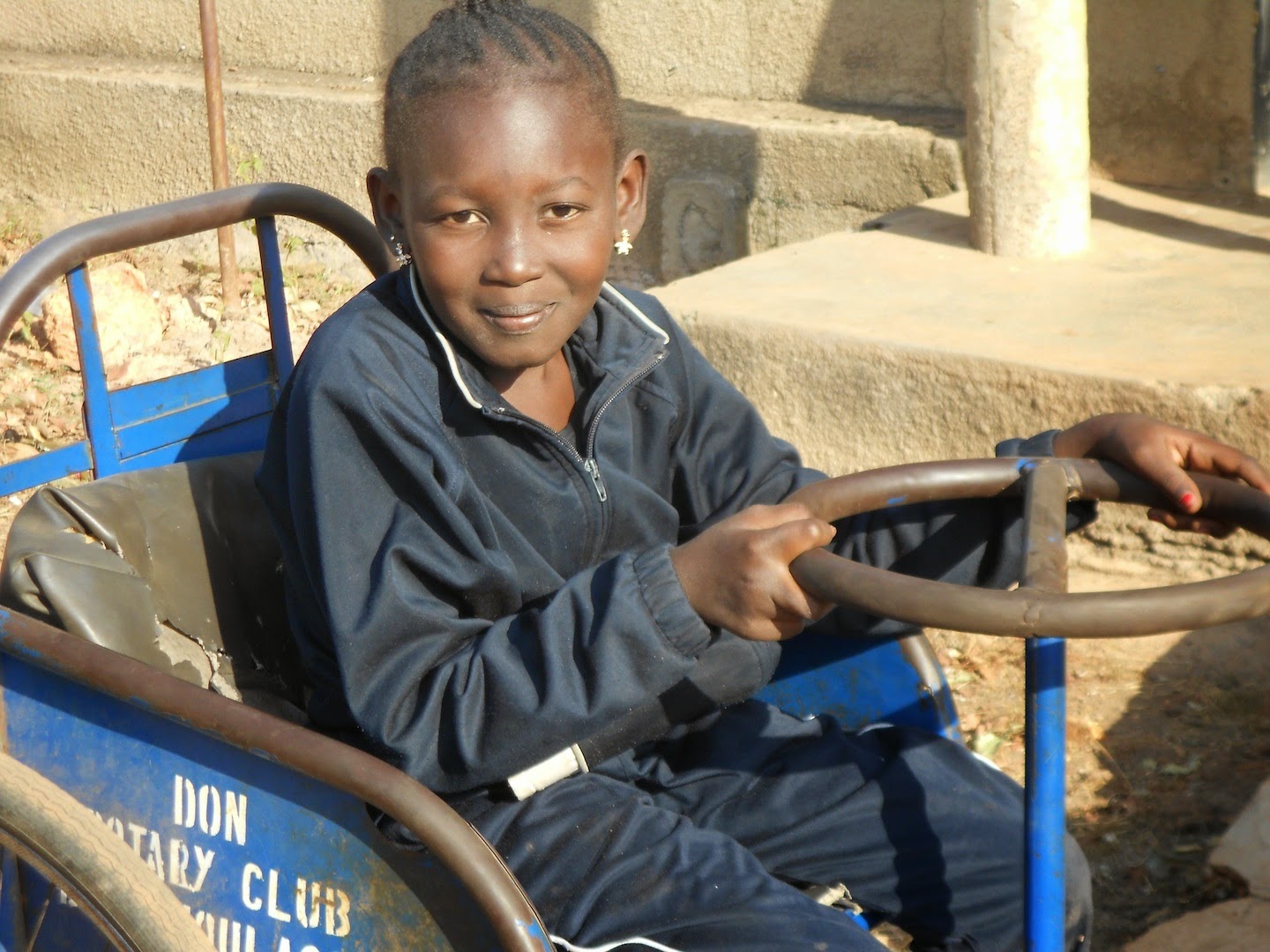
Our work in Kimini is all about
children and their needs. Some days my heart is filled with sorrow. I question
with my Western mentality how needless tragedies are allowed to happen. What
sign did we miss? How could we have intervened? What prevention should have
been in place?
Nine-year-old Fanta had died
while we were away from the village. Fanta was one of three handicapped
children in the same family. She and her two brothers, Seydou 15, and Issa 7
were all enrolled in school but only Seydou has a wheelchair to help get him to
school. Fanta and Issa were not able to go home during lunchtime. Classmates
carried her outside to sit in the shade under a tree that had a beehive in its
branches.
Being children, they began to throw stones at the hive causing it to
fall to the ground. When the angry bees swarmed, the children ran away. Helpless,
Fanta could not escape their wrath and was repeatedly stung. When help arrived,
Fanta was covered with bee stings. She was taken to the hospital but did not
survive.
Life here is harsh by any standards. When you are poor and handicapped
the odds are really stacked against you. We ask ourselves why this had to
happen but there are no quick solutions to problems when you live in the fifth
poorest country in the world.
Other days we rejoice when God
uses us to intervene on behalf a child. This was the case recently when we
became acquainted with Malima and her infant daughter. They had come to our
house one afternoon when the news spread that we had baby clothes to share. At
first glance, it was clear that this baby was very thin. After a few moments we
learned that the child was 15 months old and was not receiving the nutrition
she needed to grow. Something needed to be done before Nadjata became a sad
statistic.
In nearby Bobo there is a
special facility for children who “fail to thrive”. We had made the required
phone calls and were told they would accept Nadjata and her mother. It is
required that the mothers stay on site with their babies so they can be taught
how to prepare highly nutritious meals and monitor the weight of the babies. The
objective is to equip the mother with skills that will carry over when she
returns to the village.
Now all that was needed was consent from the family.
Burkinabe are very family-centered,
relational people. So it was no surprise that not only was the permission of
the husband needed but also approval was sought from the extended family. So
with that in place, Malima, with Nadjata in her arms, climbed into the backseat
of our limo. (Most likely her first ride in a car).
Upon arrival, health records
were reviewed, measurements taken and weight obtained. Nadjata, a fifteen-
month old, tipped the scale at a mere 5.5 kilos, about 12 pounds.
Now three and a half weeks later,
weighing 6.5 kilos, about 14 pounds, Malima and Nadjata were given the green
light to return to Kimini. The weak, listless baby girl we transported to Bobo
now giggled in the back seat as we made our way back to the village. This was
truly music to our ears!
A careful follow-up plan is in
place to monitor the progress of Nadjata’s growth. Each Monday she will be
weighed and a week’s supply of specially fortified food will be given to Malima
to prepare for the coming week. We pray that the progress that has been made will
continue and Nadjata will begin to stand, walk and thrive.
We start each day anew looking
to God for guidance and strength to face each challenge with renewed hope.















